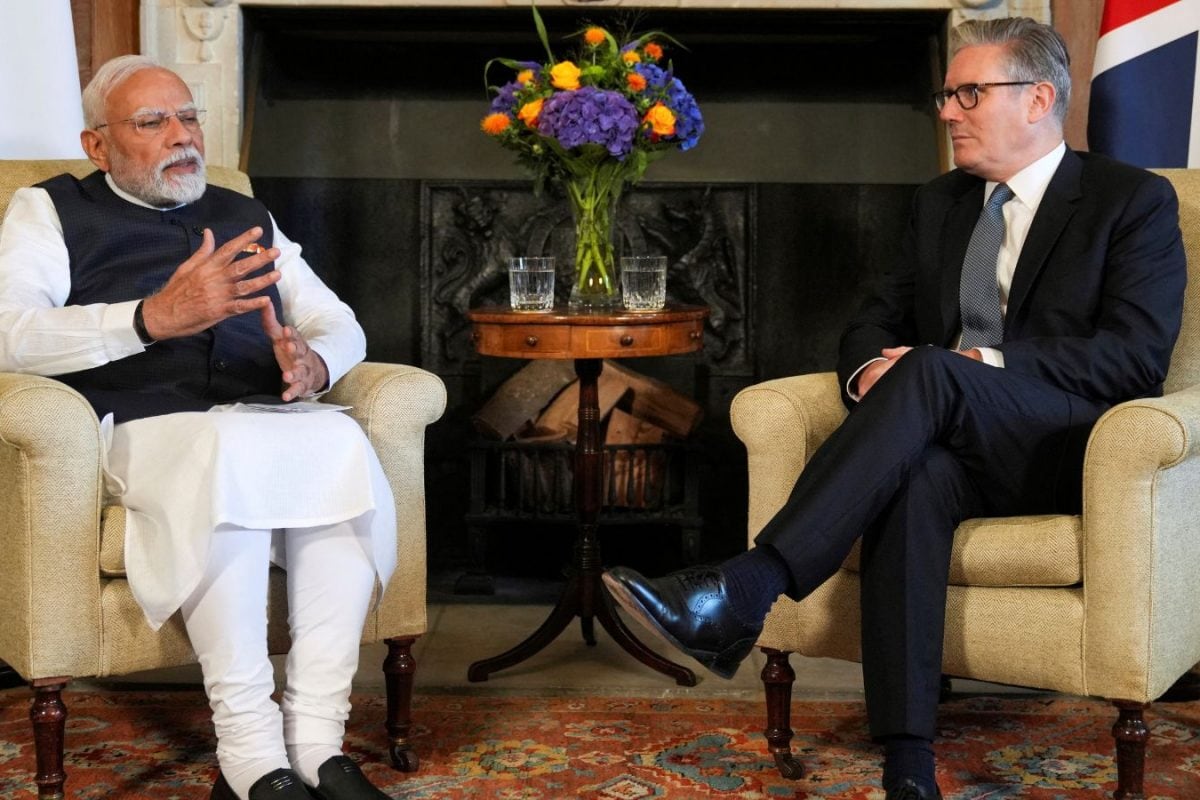

India and the UK have solidified their partnership with the unveiling of the "India-UK Vision 2035" roadmap, alongside the signing of a landmark Free Trade Agreement (FTA). This long-term vision, endorsed by Prime Minister Narendra Modi and his British counterpart Keir Starmer in London, sets the stage for enhanced collaboration across trade, technology, defense, climate action, and education over the next decade.
The "India-UK Vision 2035" is designed to foster mutual growth, prosperity, and security, navigating a rapidly changing global landscape. The agreement aims to anchor the bilateral partnership in strategic outcomes, transcending short-term commercial objectives. Both governments are committed to collaborations that will generate jobs, stimulate innovation, enable climate initiatives, and promote a fair, rules-based international order.
At the heart of the Vision 2035 lies the recently signed Comprehensive Economic and Trade Agreement (CETA), which is poised to be a catalyst for future growth plans. Both governments are dedicated to ensuring its effective implementation through mechanisms such as the Joint Economic and Trade Committee (JETCO) and by advancing discussions on a Bilateral Investment Treaty (BIT). The FTA is projected to boost bilateral trade by approximately $34 billion annually. The UK anticipates a nearly 39% increase in bilateral trade in the long run because of the agreement. The FTA is expected to significantly improve market access for businesses in both countries, leading to more affordable products and services for consumers. Tariffs on British goods entering India will drop from an average of 15% to 3%, benefiting Indian consumers with access to products ranging from soft drinks and cosmetics to cars and medical devices.
The roadmap includes new joint frameworks to drive cooperation in key sectors, including clean energy, semiconductors, green finance, biotech, defense technologies, and life sciences. A key element is the Technology Security Initiative, which will foster innovation in next-generation areas such as AI, telecommunications, critical minerals, quantum computing, and advanced materials. In the realm of defense, the two nations have agreed upon a 10-year industrial roadmap, promoting deeper collaboration in areas like jet engine technologies, maritime security, underwater systems, and direct energy weapons, with a joint mechanism established to monitor its progress. The roadmap emphasizes joint research and manufacturing, aligning with industry perspectives that the FTA should strengthen India's defense industrial base.
Furthermore, the "India-UK Vision 2035" extends to collaborative efforts in climate change mitigation and adaptation. Both countries will leverage platforms like the International Solar Alliance and the Coalition for Disaster Resilient Infrastructure. In education, the UK will encourage its leading universities to establish campuses in India, and vice versa. A joint Green Skills Partnership will promote climate-related job creation and address skill gaps. The two sides have also reaffirmed mutual recognition of qualifications and will deepen cooperation through an annual ministerial dialogue.
The "India-UK Vision 2035" will be reinforced through sustained high-level political engagement, with regular meetings between the two Prime Ministers to provide strategic direction and oversight. The implementation of the vision will be reviewed annually by India's External Affairs Minister and the UK Foreign Secretary. Focused ministerial mechanisms will address cross-sectoral issues, including technology, trade, investment, and financial sector cooperation, ensuring the partnership remains dynamic, responsive, and aligned with shared strategic interests.